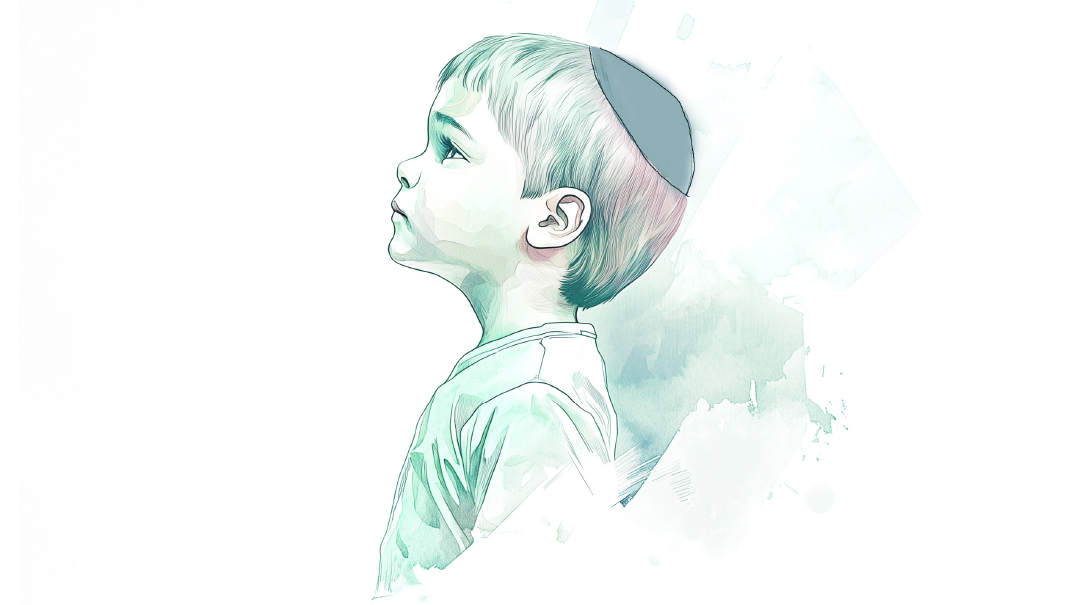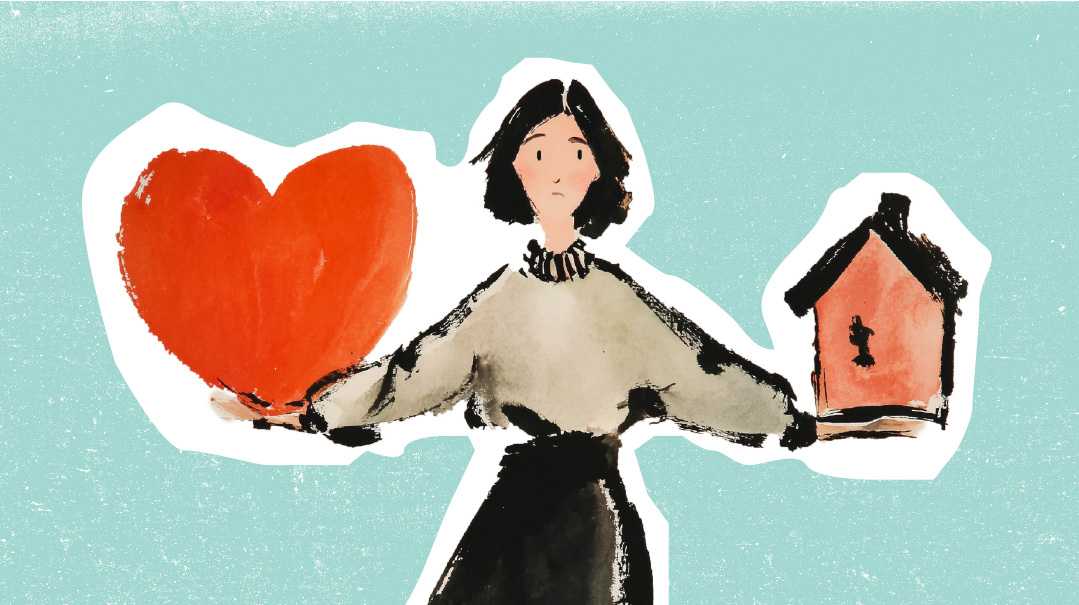“Support My Husband or Stand Up for My Kids?”

The Torah shows us it’s expected that parents will parent differently

Facilitated by Faigy Peritzman
Q
I often find myself in a quandary regarding my tafkid as both a wife and a mother, feeling like I’m forced to choose between one or the other. My husband is a big believer in tough love. It’s how he was raised. He’s not abusive, but he’s definitely harsh in the way he’s mechanech our kids and even disparaging at times. I cringe when he sometimes raises his voice or speaks more harshly than I would like. I’ve tried to speak with my husband privately, but he feels this is proper behavior of a father to his children. Is it my job to defend my children when they are being hurt by their father, or is it my job to present a united front and stand with my husband?
1
WE play many roles in life. When these roles conflict, like that of wife and mother, it can be challenging.
You mention that your husband isn’t abusive, but you often cringe at the way he speaks to your children. Determining whether or not his interactions are verbal or emotional abuse is beyond the scope of this column, and it’s essential to consult with a therapist and a rav.
Let’s assume this is a case of conflicting parenting styles, a quandary that’s true in many homes. A mother and father have different personalities, different life experiences, and different styles based on their families of origin. The merging of these two styles in so many areas is part of the challenge of marriage.
The Torah shows us it’s expected that parents will parent differently.
In Shemos (20:12) it says, “Honor your father and your mother.” And in Vayikra (19:3) it says, “A man should fear his mother and father.” These two pesukim are seemingly inverted, highlighting the least likely parent first in the area of fear and honor. We’re naturally inclined to love the soft warmth of a mother and we may instinctively fear the stricter standards of a father.
This phenomenon parallels the rachamim and din of Avinu ShebaShamayim. It’s ultimately the combination of these two approaches that help us to be the best Torah Jews we can be.
When a child recognizes that both parents share core values and have unconditional love for him, he’s able to recognize that the goal of both parents is the same even if their styles differ.
If a wife truly feels that her husband’s behavior is abusive or inappropriate, then she does have an obligation to defend her children. But here, if you’re able to see both your parenting styles as techniques with the same goal but with different expression, then you’re able to present a united front. You can be the soft voice of the loving mother, as opposed to his more disciplinarian approach, but you’re both still united in your love and goal to help your children reach their potential.
Elisheva Kaminetsky is a wife, parent, grandparent, principal, adult educator, consultant, and kallah teacher.
2
I hear the pain and distress in your question, a dilemma shared by many women striving to balance their roles as an ishah — a wife, supporting their husband, and an eim — a mother, facilitating her children’s spiritual development. While couples aim for achdus in their marriages, parents naturally have different parenting styles. Without knowing if your husband’s behavior is merely undesirable or genuinely harmful, a critical distinction, I can’t address the practical aspects of your situation. However, attempting to dictate your husband’s parenting style or wishing for him to magically change, risks backfiring and undermining shalom bayis.
So what can you do? The pasuk in Mishlei (1:8) states, “Listen, my son, to the mussar of your father, and do not forsake the Torah of your mother.” What is Toras imecha, and how can we understand this directive? A mother’s role is to instill in her children the foundation of their internal landscape: their self-concept, their inherent worthiness and lovability, their ability to distinguish between what will bring them closer to Hashem and what will distance them. This is the foundation that enables mussar avicha to take root, as the mother nurtures her child’s ability to seek and connect with Hashem. She is an “environmentalist,” cultivating a home that nourishes her children physically, emotionally, and spiritually.
When forces beyond her control threaten this ecosystem, her distress and fear are understandable, especially if she feels pressured to welcome or support those forces. Yet a mother must trust the potency of her influence. Her children look to her for sturdiness and influence and her support strengthens them. At some point, her children will encounter messages that contradict their mother’s love and encouragement and yes, it’s immeasurably painful when those statements come from their father, or even their overwhelmed mother herself. However, the power of Toras imecha, the intuitive, foundational instruction a mother instills, is profound and enduring. This influence sustains children throughout their formative years and beyond, offering them the stability and nourishment needed to thrive. Trust in your ability to cultivate this environment and the enduring impact it will have on your children.
Shevi Samet is a wife and mother, educator, kallah teacher, and Core MMC.
3
It’s painful to feel stuck between those we love. Mothers often find themselves in the middle. As Jewish women, we’re naturally peacemakers, and we want all our loved ones to be happy with each other. When they don’t, we feel compelled to fix it.
What’s confusing about your dilemma is the notion that we have to appear as a “united front.” The ben sorer u’moreh, the “rebellious child” in the Torah, “…doesn’t listen to the voice of his father and mother…” (Devarim 21:18). The Gemara (Sanhedrin 71) explains that in this scenario, both parents have the same voice, and yet the child still doesn’t listen. This distinction shows his behavior as truly rebellious and not just a result of bad parenting. Thus, it seems that “good parenting” means speaking in the “same voice” and transmitting the same message.
But what does that actually mean? Does each spouse have to agree with everything the other says? What about messages or actions that may be harmful?
It’s true that spouses shouldn’t undermine each other and should transmit the same general values. But it’s just as true that the mother doesn’t have to mirror the father’s parenting approach if she disagrees with it. The father’s allowed to have one kind of relationship with his child, and the mother, a different relationship. You can definitely do that without disparaging your spouse to the children.
What’s important is that you don’t get stuck in the middle. This means that you can’t force your husband to change his ways, and the sooner you stop trying, the happier you’ll be.
If your kids complain to you about their father, you should gently encourage them and give them tools to speak directly to their father. This essential skill is for life. Direct communication is always the smoothest path to take.
If your children can express their angst respectfully and lovingly to their father, as you have taught them, he may start noticing that there are better ways for him to parent. You’re lovingly supporting your children through this process, but not taking the reins from their hands.
Ruchi Koval is a kiruv rebbetzin, parent coach, author, public speaker, mother, and grandmother.
(Originally featured in Family First, Issue 928)
Oops! We could not locate your form.







